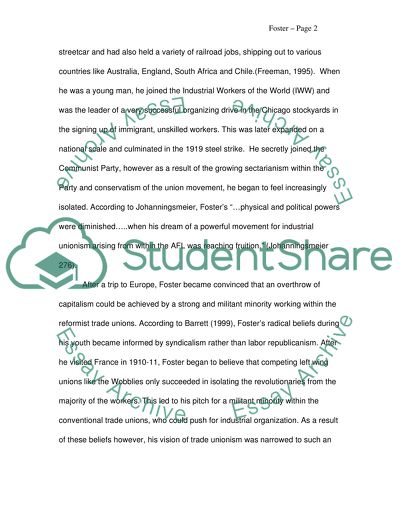Cite this document
(William Z Foster and the Tragedy of American Radicalism Book Report/Review, n.d.)
William Z Foster and the Tragedy of American Radicalism Book Report/Review. Retrieved from https://studentshare.org/biographies/1542715-biography-on-william-z-foster
William Z Foster and the Tragedy of American Radicalism Book Report/Review. Retrieved from https://studentshare.org/biographies/1542715-biography-on-william-z-foster
(William Z Foster and the Tragedy of American Radicalism Book Report/Review)
William Z Foster and the Tragedy of American Radicalism Book Report/Review. https://studentshare.org/biographies/1542715-biography-on-william-z-foster.
William Z Foster and the Tragedy of American Radicalism Book Report/Review. https://studentshare.org/biographies/1542715-biography-on-william-z-foster.
“William Z Foster and the Tragedy of American Radicalism Book Report/Review”, n.d. https://studentshare.org/biographies/1542715-biography-on-william-z-foster.


